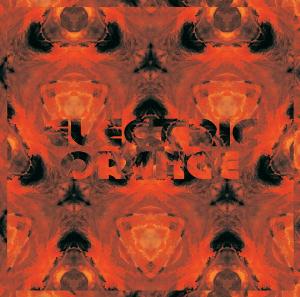The music of Electric Orange, founded in 1992 in the city of Aachen, represents the so-called krautrock scene that emerged in the seventies (see explanation below). Originally they were a duo consisting of Dirk Bittner (vocals, guitar, percussion) and Dirk Jan Müller (synthesizers, keyboards). During the nineties the band recorded a few albums for the famous British Delerium label, combining psychedelics with electronic rhythms, similar to bands like Ozric Tentacles. Later on they were joined by Georg Monheim (drums) and Tom Rückwald (bass). The album XX, mastered by Eroc, the former drummer of Grobschnitt, is a special and limited release commemorating their twentieth anniversary. The album has been released on vinyl only as a double LP, but with the album comes a code which can be used to download the tracks in high quality digital FLAC format. The album perfectly illustrates how Electric Orange have developed in the past decades. Each side of this double LP contains only one track with a playing time of about twenty minutes. The music combines the elements from the first generation krautrock legends: the drums and bass section from Can, the guitars from Ashra Tempel, the ethnic percussion from Popol Vuh and the synthesizers from early Tangerine Dream. The organ sound reminds me of Richard Wright (Pink Floyd) during Meddle (1971), but especially the music of Agitation Free is quite similar to that of Electric Orange. But all these elements are well-balanced; there's a flow from the beginning to the end and in between there's never a dull moment. All tracks are journeys to unknown territories. Apart from the references from the above-mentioned krautrock legends they add value and something of their own to the music. Electric Orange have released a lot of material, but most of it on CDRs which are sold during the rare concerts the band give. They're one of those musical secrets that deserve more attention. They are at their best in minor and intimate venues attended by a small but dedicated audience. Krautrock It took a long time for Germany was brought to terms with krautrock. Many of the bands and artists that were labelled as such didn't like to be part of it, because they didn't consider themselves to be rock musicians since their mainly electronic music differed a lot from other 'common' bands from the seventies. There wasn't a movement, but just pockets in different cities with people that only had in common that they wanted to revolt against the establishment, both in real life and in music. They were all insulted because the word 'krautrock' was apparently invented by an Englishman who derived it from 'sauerkraut', a nickname for German soldiers during World War II. Only in the mid-nineties krautrock was rediscovered and the Germans found out that this style of music was highly and genuinely appreciated in Britain and other countries. So they finally accepted the name krautrock as a sobriquet for their own rich musical history. **** Erik Gibbels (edited by Peter Willemsen) Where to buy? |
